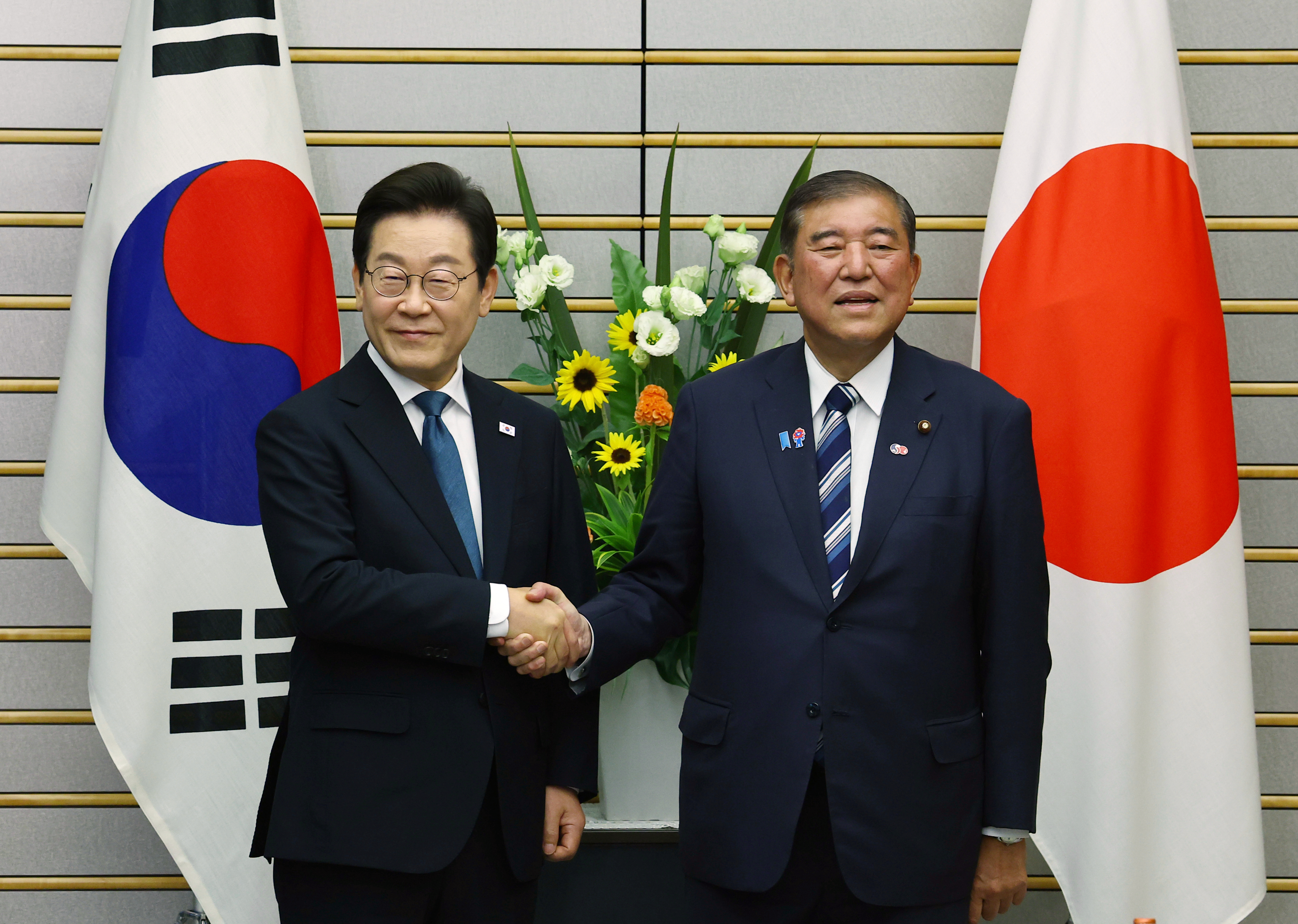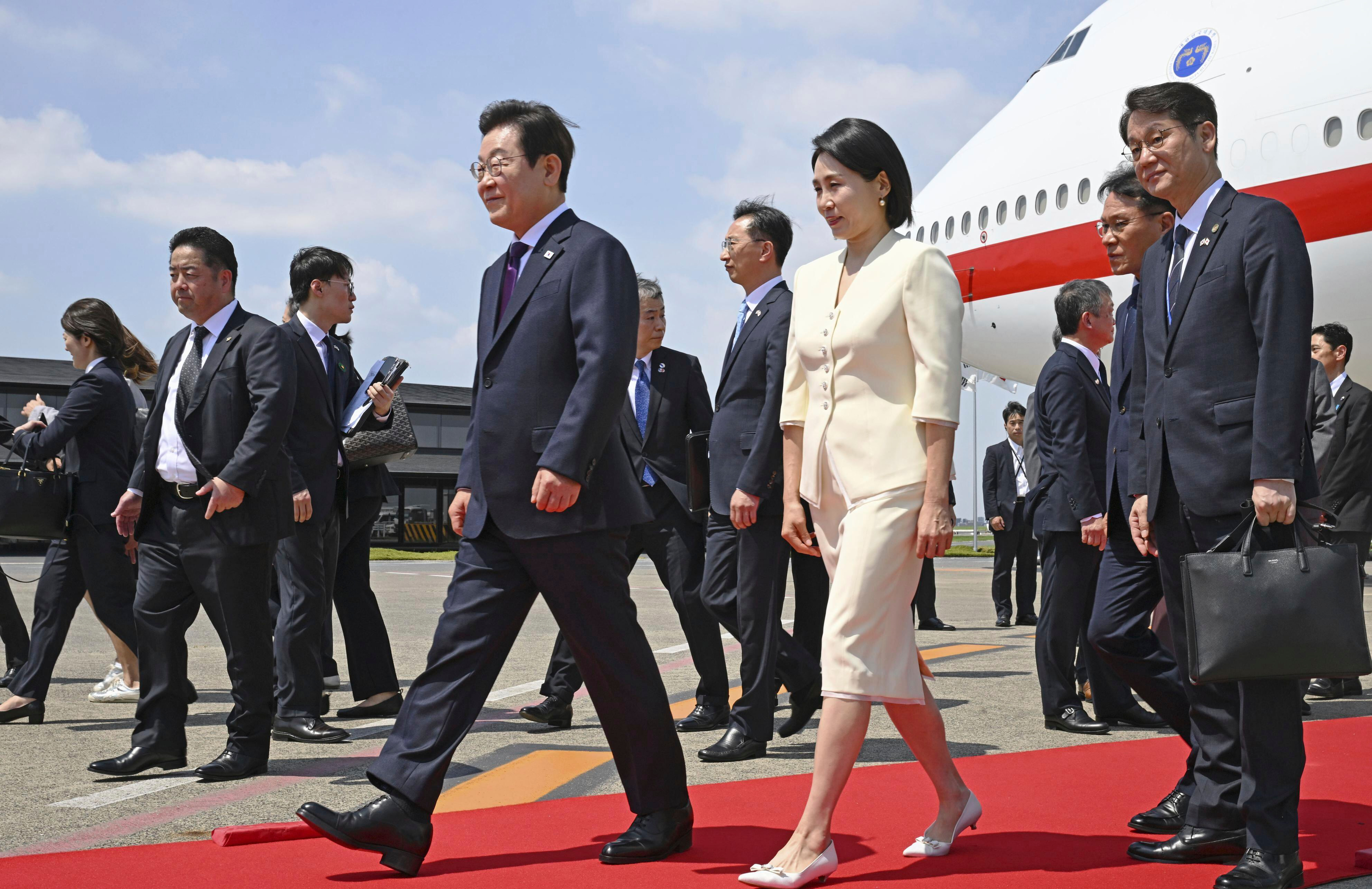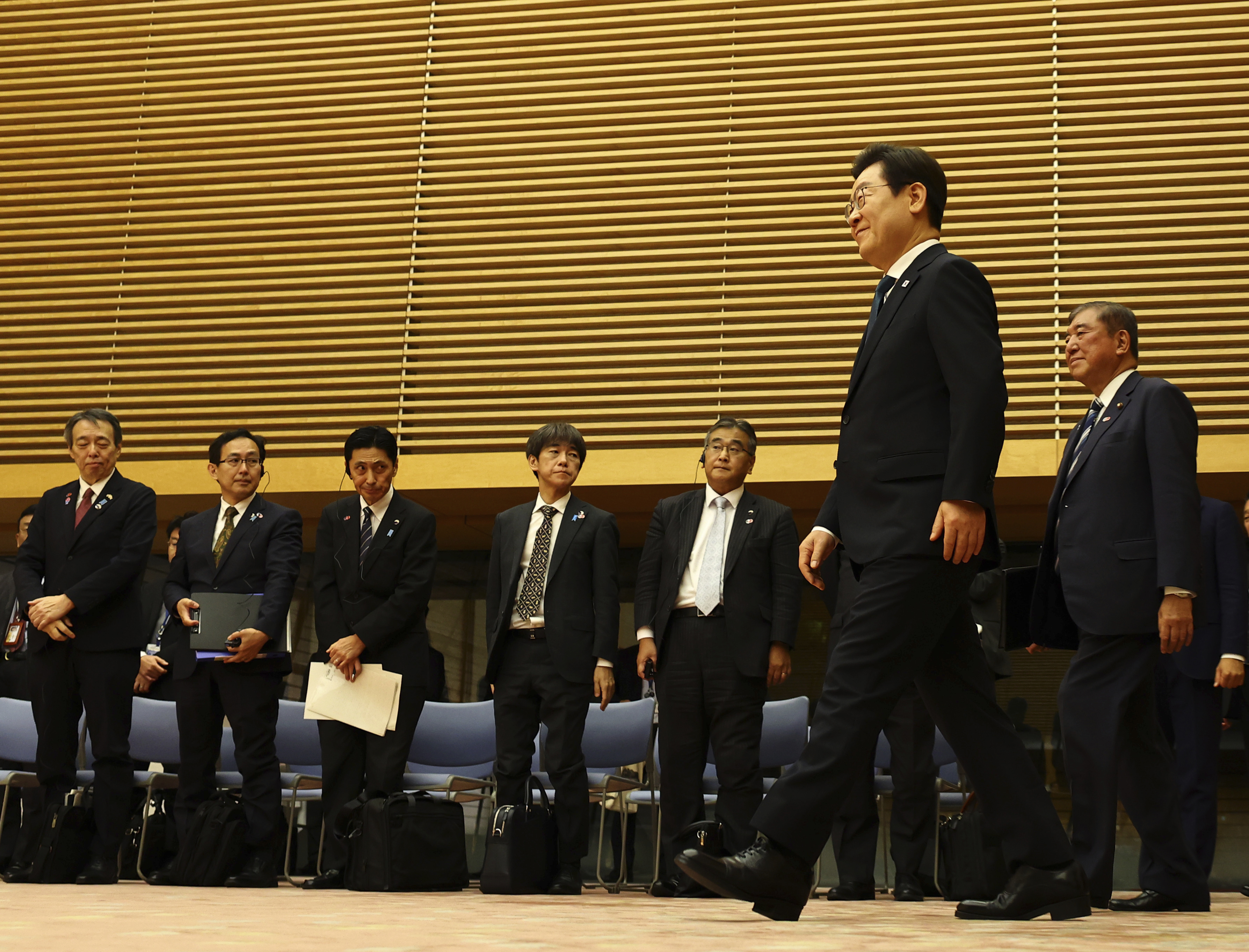
TOKYO - South Korean President Lee Jae-myung chose Japan over the United States as the destination for his first overseas trip since taking office except for attending international conferences, a move seen as a break with tradition and a signal of Seoul's intent to recalibrate ties with its neighbor before talks with US President Donald Trump.
Once a strong critic of Japan on historical issues, Lee is shifting his stance as head of state, seeking cooperation with Tokyo in areas such as hydrogen energy and artificial intelligence, while also coordinating positions to counter US pressure on tariffs and defense burden-sharing.
ALSO READ: S. Korean president visits Japan on ties
Despite the warmer rhetoric, analysts warned that deep-rooted historical disputes would remain a long-term obstacle to stable bilateral ties.
Shift in stance
After talks between Lee and Japanese Prime Minister Shigeru Ishiba, the two governments issued a joint statement, the first time in 17 years that the two countries had released such a document following a leaders' summit.
South Korea's national security chief Wi Sung-lac said the small-group discussions extended beyond the scheduled duration, reflecting the wide range of issues both sides consider urgent.
Lee, who once harshly criticized Japan over historical issues and labeled his predecessor's outreach to Tokyo as "humiliating diplomacy," has softened his tone since taking office in June.

In a recent interview with Japan's Yomiuri Shimbun, he said Seoul and Tokyo must not be bound by history and should instead expand mutually beneficial cooperation. He even acknowledged the controversial 2015 agreement on the "comfort women" issue which he had once strongly opposed.
Analysts noted that as a progressive politician, Lee previously emphasized Japan's wartime responsibility to differentiate himself from conservatives.
Countering US pressure
Traditionally, new South Korean presidents make Washington their first overseas stop. Lee is the first to visit Japan first since the normalization of diplomatic ties between the two countries.
US media noted that both Seoul and Tokyo face pressure from Washington, and that Lee's visit to Tokyo helps him coordinate positions before his meeting with Trump.
ALSO READ: S. Korea expressed regret to Japan over memorial for mine workers
Toru Yoshida, a professor at Doshisha University in Japan, said that if South Korea and Japan coordinate their positions in advance, it could put some pressure on the United States. Should the two countries reach a consensus on economic and security issues, South Korea could gain greater leverage in its negotiations with Washington.
Choi Eun-mi, a research fellow at South Korea's Asan Institute for Policy Studies, noted that Ishiba has already held talks with Trump, and hearing Ishiba's views in advance would help Lee prepare for his own meeting with the US president.

For Japan, hosting Lee's first overseas trip was a diplomatic boost. Ishiba called the visit "encouraging," with analysts noting that a series of successful diplomatic events could strengthen his standing amid pressure inside the ruling Liberal Democratic Party (LDP) following election setbacks.
Historical issues remain
Despite the warmer tone, analysts warn that historical issues remain an enduring source of friction between South Korea and Japan. Lee himself acknowledged in interviews that history is the most difficult issue in bilateral ties.
Zhu Jianrong, a professor at Toyo Gakuen University, said Lee cannot align completely with conservative forces on history, noting he will have to maintain his "progressive base."
Other experts pointed out that Japan's conservative right has long sought to downplay wartime responsibility. With Japan's political climate shifting further to the right, prospects for genuine reconciliation between the two neighbors remain uncertain.
READ MORE: South Korea boycotts Japan memorial event at mine in blow for ties
The recent rise of the far-right Sanseito in Japan's July upper house elections underscored the trend, with the party espousing strong revisionist views on history.
Keio University professor emeritus Hiroshi Onishi said Japan's xenophobic sentiment is growing, raising doubts about whether Tokyo will address South Korea's demands on wartime labor and "comfort women."
Zhu added that the ruling LDP, wary of losing right-wing voters to Sanseito, may send stronger nationalist signals, potentially reversing progress in historical recognition and reigniting disputes with Seoul.


